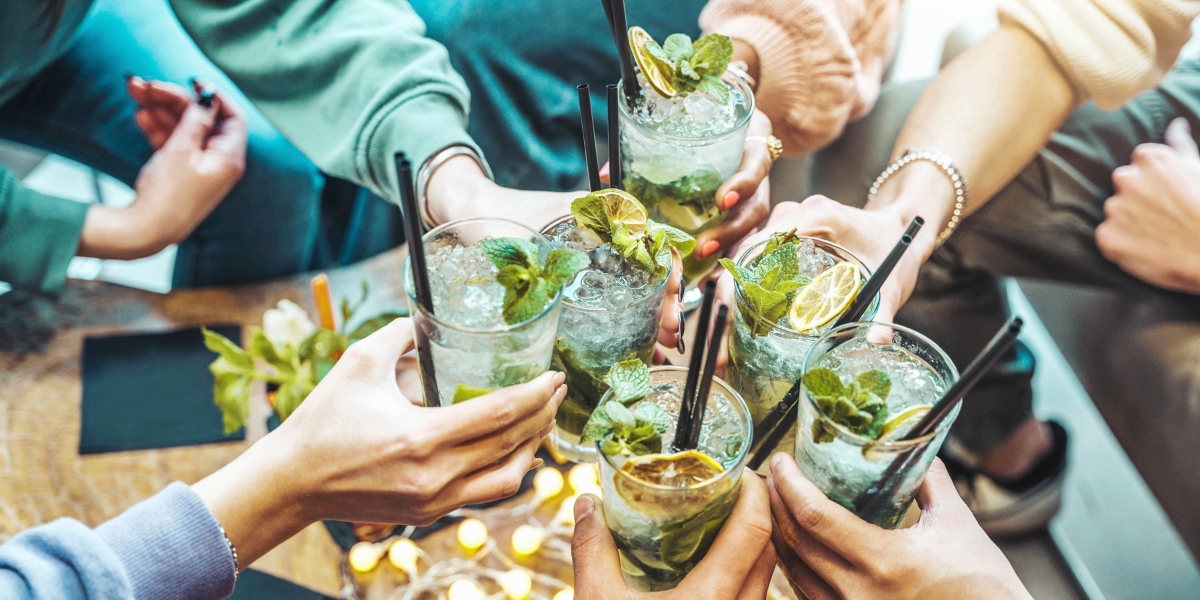Facts About Binge Drinking

Not many people realize that someone who drinks four martinis with dinner or seven or eight beers during a sports game is considered a binge drinker. If you were to ask someone what binge drinking means, they would probably mention things like taking too many shots, drinking too much beer, or other examples of excessive drinking that are often stereotyped.
Many people lack awareness of the facts about binge drinking, including its dangers and potential short-term and long-term effects. Annually, individuals in binge drinking consume 17 billion binge drinks in the United States.
Binge drinking in the United States costs $191 billion annually, including emergency response, healthcare, lost productivity, and legal fees. The toll on individuals and their loved ones’ physical, emotional, and mental health is immeasurable.
What Is Binge Drinking?
Binge drinking, as explained by the scholars at the National Institute on Alcohol Abuse and Alcoholism (NIAAA) and the Substance Abuse and Mental Health Services Administration (SAMHSA), is the act of drinking in excessive amounts within a single sitting, elevating your blood alcohol concentration (BAC) to 0.08% or beyond.
According to the Centers for Disease Control and Prevention (CDC), binge drinking is defined as five or more beverages within two hours for men. For women, it is considered binge drinking when having four or more drinks.
Is Binge Drinking Alcoholism?
Binge drinking is distinct from alcoholism, yet it remains a problematic and risky behavior that can eventually lead to a chronic condition known as alcohol use disorder, commonly referred to as alcoholism. The primary differentiation lies in physical dependency and behavioral patterns.
Binge drinkers can have a lot of drinks in one night but then not drink for weeks without any harmful effects. They can control how often they drink but have difficulty managing how long they drink for and how much they drink. Binge drinking is a risky type of substance abuse. People who do it often have a higher chance of becoming addicted to alcohol.
Individuals with alcohol use disorder are physically reliant on alcohol and will encounter withdrawal symptoms if they abruptly cease drinking, including potentially fatal alcohol withdrawal seizures. Alcoholics do not necessarily engage in heavy drinking at all times, but they must consume alcohol daily to avert illness, although some may also exhibit binge drinking patterns.

What Is a Binge Drinker?
Within the realm of intoxication, a term emerges known as the “binge drinker,” someone who regularly participates in excessive alcohol consumption in a short period of time. As a phenomenon, binge drinking knows no bounds of age, gender, race, or background.
In the United States, the population consumes 17 billion binge drinks annually, an average of 467 drinks per adult who indulges in such revelry. Here are some additional facts about binge drinking and the individuals who partake in this behavior:
- Around 1 out of 6 American adults engage in binge drinking, with a quarter confessing to indulging in this behavior on a weekly basis
- 90% of individuals who consume alcohol heavily also report engaging in binge drinking
- 1 in 4 binge drinkers consumes at least eight drinks
- Around 24% of the U.S. population admits to regularly engaging in binge drinking
- 90% of individuals who consume alcohol and are under the legal drinking age of 21, including high school and college students, are classified as binge drinkers
- Binge drinking is most prevalent among individuals aged 18 to 34 years old.
- Elderly individuals have a higher tendency to indulge in excessive drinking compared to younger adults
- Binge drinking directly contributes to about 47,000 deaths in the US every year
Effects of Binge Drinking
The effects of binge drinking are more dangerous than most people realize, as they impact the body, immediate behaviors, and decision-making. Binge drinking significantly increases the risk of engaging in unsafe sexual behavior and other destructive activities that endanger the person involved in binge drinking and those around them.
The effects and dangers of binge drinking include:
- Unintentional harm and fatalities encompass road accidents, slips, submerging, and alcohol poisoning
- Heightened vulnerability to becoming a victim of violence and sexual assault
- Increased likelihood of drug use
- Experiencing blackouts and periods of memory loss
- Vomiting and subsequent discomfort
- Hangovers are the unpleasant after-effects of excessive drinking
- Greater susceptibility to sexually transmitted diseases
- Unplanned pregnancies due to impaired judgment and decision-making.
- Suicidal thoughts and behaviors
- Legal troubles arise from poor judgment and engaging in risky behaviors
While most short-term health effects of binge drinking subside as alcohol leaves the body, repeated episodes can lead to long-term physical and mental health problems, similar to other alcohol use disorders.

Long-Term Consequences of Binge Drinking
In the end, people will face long-term problems because of drinking too much, which can lead to developing a habit of drinking alcohol.
Drinking too much alcohol for a long time can cause the following problems:
- Weakening your body’s ability to fight off illnesses
- Forgetting things or having trouble with your memory
- Finding it hard to think and learn new things
- HIV
- Erectile dysfunction
- Fertility issues
- Liver damage
- Heart damage
- Kidney damage
- Pancreatitis
- Making your blood pressure higher than it should be
- Changing your moods and making you feel sad or worried
- Increasing your chances of having a stroke (when blood can’t reach your brain correctly) or a heart attack (when your heart stops working properly)
- Seizures
- Post-acute withdrawal syndrome, which can make you feel highly uncomfortable after you stop drinking
Like other problems related to using substances, drinking too much is caused by a mix of things like how your body works, how you think and feel, what you do, and the things around you. Overcoming this problem requires a treatment that’s based on facts and has been proven to work, and it should cover all these different aspects.
The places where you spend time with others can significantly impact how much you drink. Going to a treatment center where you live for a while can help you start fresh in a new place where you won’t feel pressured to drink.
Evidence-Based Alcohol Abuse Treatment
You don’t have to wait until your drinking is out of control to seek help. There’s support available and a different way of living for you or your loved one if binge drinking has become a concern.
At Northridge Addiction Treatment Center, we take pride in our comprehensive approach to treatment that focuses on the whole person and is based on solid evidence. We’re here to help you tackle and overcome all aspects of alcohol abuse and addiction.
Get in touch with our team of compassionate treatment specialists now. We’re eager to assist you in starting a life centered around recovery.
Find Meaningful Recovery
Our caring and compassionate specialists are eager to help you comfortably navigate this journey to recovery. Our individualized treatment plan, programs, and therapies may be a perfect match for you or your loved one. Let us assist you in living the happy life you deserve. It starts with a phone call.




